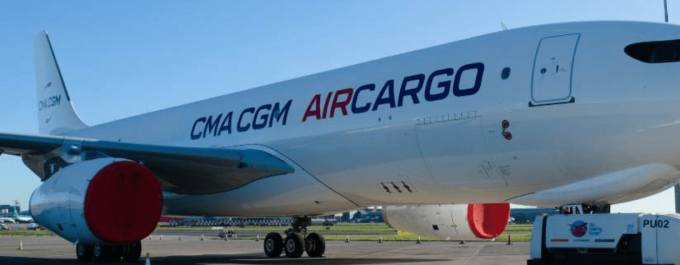Legal wrangle over terminal project could hobble South African port efficiency hopes
Continued congestion at South African ports hit by high winds has brought calls for a ...

Rather than posing a threat, shipping lines are paying air freight “a wonderful compliment” by moving into their space, says TIACA director general Glyn Hughes.
Maersk and CMA CGM have pursued a fast-paced strategy that has transformed them from being largely box carriers into end-to-end logistics players, some would say integrators.
Today, they are also forces to be reckoned with in air freight – having set up their own airlines, acquired freighters and purchased forwarders.
In a recent podcast by Australia-based consultancy Logistics Executive ...
Trump tariffs see hundreds of cancelled container bookings a day from Asia
'To ship or not to ship', the question for US importers amid tariff uncertainty
'Disastrous' DSV-Schenker merger would 'disrupt European haulage market'
'Chaos after chaos' coming from de minimis changes and more tariffs
Forto 'sharpens commercial priorities' as it lays off one-third of staff
List of blanked transpac sailings grows as trade war heats up and demand cools
EC approves DSV takeover of DB Schenker
Overcapacity looms for ocean trades – with more blanked sailings inevitable
Amazon Air’s metamorphosis: 'a different air cargo unit from two years ago'
Shippers in Asia restart ocean shipment bookings – but not from China
India withdraws access for Bangladesh transhipments, in 'very harmful' decision
'Tariff hell' leaves industries in limbo – 'not a great environment to plan'

Comment on this article